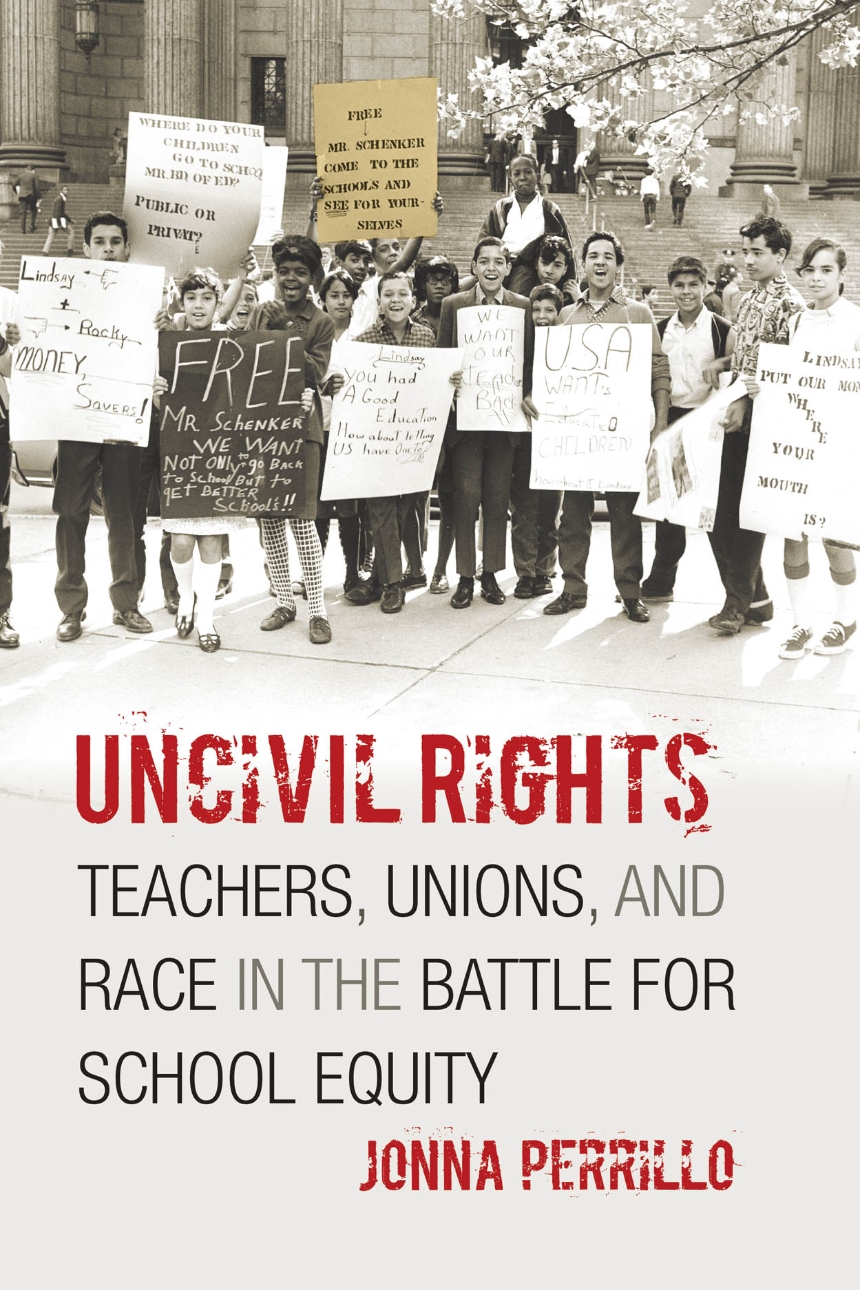Uncivil Rights
Teachers, Unions, and Race in the Battle for School Equity
9780226660721
9780226660714
9780226660738
Uncivil Rights
Teachers, Unions, and Race in the Battle for School Equity
Almost fifty years after Brown v. Board of Education, a wealth of research shows that minority students continue to receive an unequal education. At the heart of this inequality is a complex and often conflicted relationship between teachers and civil rights activists, examined fully for the first time in Jonna Perrillo’s Uncivil Rights, which traces the tensions between the two groups in New York City from the Great Depression to the present.
While movements for teachers’ rights and civil rights were not always in conflict, Perrillo uncovers the ways they have become so, brought about both by teachers who have come to see civil rights efforts as detracting from or competing with their own goals and by civil rights activists whose aims have de-professionalized the role of the educator. Focusing in particular on unionized teachers, Perrillo finds a new vantage point from which to examine the relationship between school and community, showing how in this struggle, educators, activists, and especially our students have lost out.
264 pages | 6 x 9 | © 2012
Education: Education--Economics, Law, Politics, History of Education, Pre-School, Elementary and Secondary Education
History: American History
Reviews
Table of Contents
Acknowledgments
Introduction
Chapter 1. Building a “New Social Order”: Teachers, Teacher Unions, and Equity in the Great Depression
Chapter 2. Muscular Democracy: Teachers and the War on Prejudice, 1940–1950
Chapter 3. Organizing the Oppressed Teacher: Teachers’ Rights in the Cold War
Chapter 4. “An Educator’s Commitment”: Professionalism and Civil Rights in the 1960s
Chapter 5. From Teachers’ Rights to Teacher Power
Conclusion. Moving beyond Rights? Teacher Professionalism and Civil Rights in the Era of No Child Left Behind
Abbreviations
Notes
Bibliography
Index
